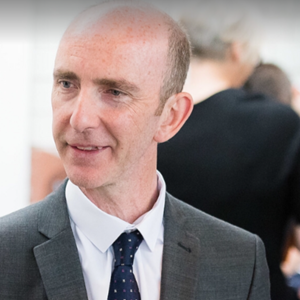Key Findings:
- Over one in ten (12%) of the lowest-income households are behind on council tax bills, compared to one in a hundred for the highest income.
- More than half of households (51%) who are behind on council tax are having to cut back on food to save money. This compares to one in three (36%) lowest income and around one in five (18%) of all households.
- More than one in three (37%) of households behind on their council tax have had to borrow from friends and family due to their debt levels compared to one in ten (9%) of all households.
- With increases in council tax likely at the draft Budget on Thursday (15th Dec), the Scottish Government must act to take greater numbers of low-income families out of paying council tax – ‘There’s little point charging tax, fees and charges we know families simply can’t afford. It’s wrong in practice and wrong in principle.’
The Robertson Trust, one of Scotland’s largest independent funders, has today published new research showing that many low-income families are being pushed into debt and arrears by the public bodies meant to be helping them through the cost-of-living emergency.
The Trust, which works to build solutions to tackle poverty and trauma in Scotland, commissioned the report Debt and Arrears in Scotland to understand the level of debt and arrears in Scotland as we go through the cost-of-living emergency. The report includes new polling and looks, in particular, at money owed by low-income families to public bodies, for things like council tax, water charges, school meals, and other fees and charges.
With prices increasing faster than we’ve seen for decades the report finds that while many households in Scotland are struggling with essentials such as energy and food, it is the poorest families that are struggling the most.
- Lower income households are struggling the most – polling in the report shows just under one in three (29%) households with lower incomes (bottom two-fifths of incomes) are financially struggling, compared to around one in ten (9%) higher income households (top three-fifths of incomes).
- Most people in council tax arrears are on low-incomes – the polling shows more than one in ten households (12%) on the lowest incomes (bottom fifth of incomes) are currently behind on their council tax bills in contrast to only one in a hundred (1%) of those on the highest incomes.
- People who owe money to public bodies are going without essentials – the polling shows over half of households (51%) who are behind on their council tax have cut back on meal/portion sizes to save money, this compares to around one in three (36%) of the lowest income families and around one in five (18%) of all households. More than two-fifths (42%) have had to skip meals to save money compared to one in four (25%) of the lowest-income, and one in ten (12%) of all households.
- Public bodies are chasing debts and arrears that people can’t afford to pay – over 150,000 third-party deductions (including benefit deductions) were applied for by councils in Scotland in 2021/22 for council tax debt (from the 22 local authorities that responded). Our interviews heard reports of schools chasing debts through legal action for as little as £10 for school meal arrears, and other reports that councils have become financially dependent on the additional surcharges placed on household’s bills if they fall behind.
The Scottish Government has increased the Scottish Child Payment to £25 per week for low-income families in Scotland. However, many families will see much of this increase wiped-out with debt and arrears collection to public bodies.
The Trust is calling for action from the Scottish Government ahead of the draft budget on Thursday (15th Dec) to see:
- A pause on collecting debt and arrears owed to public bodies until at least April 2023 to provide breathing space for families, and time to reset Scotland’s approach on debt and arrears.
- Write-off of some of the debt and arrears owed by low-income families to public bodies in Scotland – ending the waste of chasing families for money we know they can’t afford to pay.
- All low-income families in receipt of Universal Credit removed from paying council tax in Scotland.
- A full discount on water charges for the lowest income families introduced (increasing the maximum income-based discount from 35% to a maximum of 100%).
- School meals being provided free at the point of use with upfront fees banned.
- The Scottish Government and public bodies should urgently work together to establish common, Scotland-wide standards on debt, arrears, and recovery – centred on the principles of dignity, respect and human rights.
Russell Gunson, Head of Programmes and Practice at The Robertson Trust, said:
“The cost-of-living emergency is increasingly becoming a debt crisis for many low-income families in Scotland.
“The Scottish Government deserves credit for increasing the Scottish Child Payment for low-income families with children. And the UK Government is providing help with energy bills, albeit inadequate for many. But too often government bodies are ‘robbing Peter to pay Paul’, giving with one hand and taking with the other through over-zealous debt collection
“Our research shows that it’s money owed to public bodies that’s often toppling family finances over the edge. At the Scottish Government’s budget this coming Thursday, we are likely to see increases in council tax to help balance the books. But we can’t balance the books on the backs of low-income families in Scotland. There’s little point in government charging people tax, fees and charges we know they simply can’t afford it. It’s wrong in practice and wrong in principle.
“We must see action to take more low-income families out of paying council tax and water charges, write-off past debts to public bodies where we can, and see a pause to collecting arrears at least until next Spring. This will give us time to reset Scotland’s approach to debt and arrears and take away some of the headwinds facing low-income families this winter.”
Russell Gunson is available for interview.
For further information please contact russell.gunson@therobertsontrust.org.uk.



